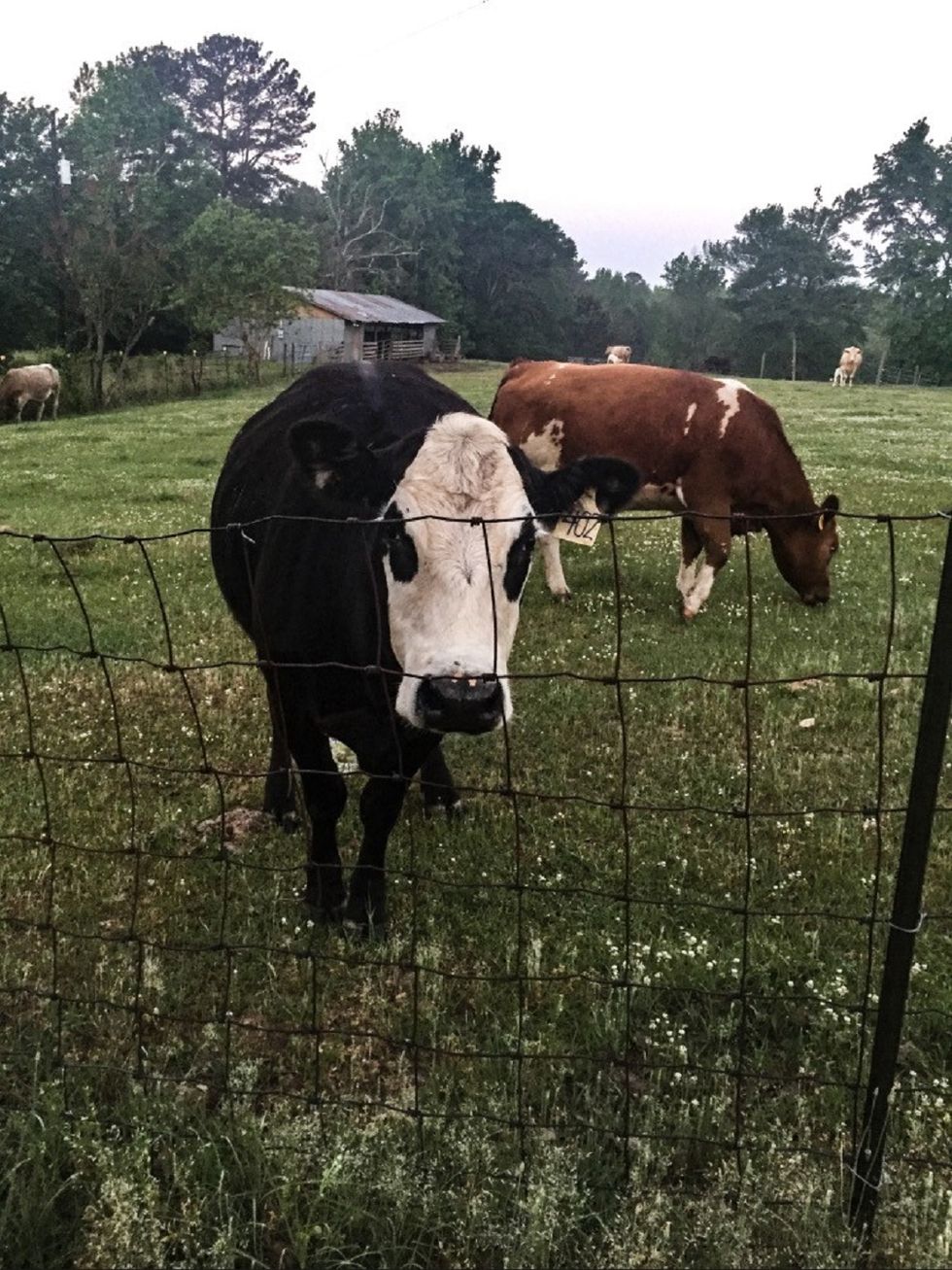One of my life goals is to eventually own a cow/calf operation (breeding and raising cattle to sell to either a stocker or a feedlot). This will require a lot of research and knowledge of cattle on my part. I've been exposed to cattle all my life, but as far as managing, I'm a beginner. I started doing more research when I moved the Alabama and have decided there are some important things to learn and know about the industry before committing to it. As with all livestock and food animals, there's a lot of hard work and dedication required as well as knowledge and experience needed to establish myself. People who want to get into the industry can be intimidated by their lack of experience sometimes, and my purpose for his article is to give you enough knowledge to prepare you for the industry. It's ok to be a beginner, and it's ok to have a lot to learn as long as you're passionate about it! So without further ado, here are the top points I believe you should focus on BEFORE committing to the Beef cattle industry.
1) First and foremost, become certified both in Beef Quality Assurance and Masters of Beef Advocacy. These are programs specifically for the purpose of enhancing the quality of an operation. You'll learn the difference between running a cow/calf, stocker and feedyard operation and each of their specific requirements. Not only is it great for current farmers and ranchers wanting to maintain the quality of their operation, but it allows beginners the opportunity to understand what is required as far as vaccinating, sanitary procedures and animal behavior. The best part is that you learn good talking points for advocating the industry with consumers. There might also be local programs that can enhance your learning as well, such as the Young Cattlemen's Leadership Program here in Alabama or your states cattlemen or cattle women associations
2) Figure out what operation you can/ want to run. Your main options are purebred/Seedstocker, cow/calf, stocker/backgrounder or feedlot. You'll have to consider land availability and geographical location amongst other things. Look at the difference between cow/ calf or vs. a feed yard for example. They each require different management practices, feed sources and land needs. Step 1 comes in handy for determining this.
3) Determine what breed of cattle you can have. Learn the breeds of beef cattle and what each is known for as far as things like reproduction, heat tolerance and carcass quality. Each breed has their own characteristics that require different management and location. For example: black angus have great quality carcasses but are lower on the heat tolerance scale, whereas charolais cattle are more heat tolerant and still great in meat quality.
4) Keep in mind the kind of meat you want to provide. Are you wanting to be organic or grain finished? Really educate yourself on this to know for sure WHY you want to be one over the other and HOW you'll achieve this. There are strict requirements for each category. Therefore, make sure you know all the food labels and what they really mean. You as a producer are not only providing quality meat, but are also advocating to and educating consumers about our industry, one the media typically misrepresents. Understanding why you are raising the cattle the way you are and justifying it can be a great way to inspire someone else to get involved.
5) What kind of land are you planning to graze your cattle on? The most economic way to feed cattle is with forage(grasses and plants eaten by grazing animals) that you grow and manage on your own property rather than purchasing hay and other feeds. Determine what kinds of forage grow best in your soil and location. You'll also need to provide extra supplements such as minerals and vitamins as well, those requirements depend greatly on the stage of life your cattle are at currently. Also, don't forget to decide a practical grazing method so your forage lasts longer and is higher quality. Beef basics 101 through Alabama extension has been a great resource in learning the basics of forage.
6) Consider how you'll acquire your herd. This obviously largely depends on what operation you'll be running but I've read of a few options for cow/calf herds and what it comes down to is what you feel is best for you and your operations success. You can go to sale yards, you can purchase from neighbors, you can purchase old cows and breed them solely for the purpose of getting new heifers that will ultimately be the foundation of your herd etc. There are pros and cons to each of these, but the point is that you focus on quality and do your research well.
7) This is possibly such an obvious point to bring up so it may come across as condescending but it is not meant to be! KNOW your cattle terminology. What is a steer, what is a replacement heifer, the difference between a cow and a heifer, etc. trust me, it can be confusing, but it is necessary to know what you're talking about.
8) Learn about the Veterinary Feed Directive. This is a a new policy introduced just this year requiring all operations to consult with their veterinarians before giving their cattle medicated feedstuffs. Learn about proper use of vaccinations (step 1 to the rescue again) and the most common you'll possibly have to administer. The kinds of vaccinations you'll give vary depending on location and herd, but being familiar with all of them is only a benefit.
9) Become familiar with legislative laws in the state you want to have your operation. There are laws that greatly affect how you manage your facility( take the VFD for example). Animal Ag Alliance has a legislative map that shows you all current and past laws regarding Right to Farm, Production Practices, Antibiotics, etc., that have either failed or passed.
10) Regardless of your experience, or lack thereof, get hands on. The best way to learn is to do. Your best resources will be the connections you make so join an association, it doesn't require a major commitment, but does teach you more about the local industry. Ultimately, the work you put in will show in your herd, and being educated is the first step to making an operation great. An animal science instructor I had once said, "people aren't dumb, they are just uneducated." He was referring to the fact that just because you don't know something, doesn't mean you are unintelligent, it just means you need to be educated on it. I've held that close to my heart as a beginner and hopeful future producer in the Beef industry.























